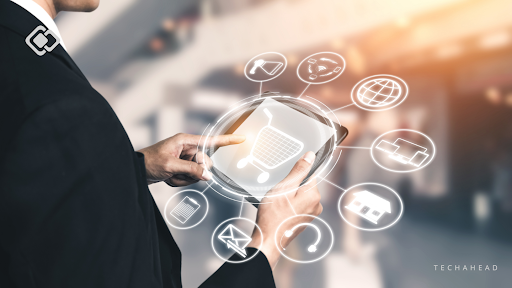The purchasing and selling of products or services through the internet are known as e-commerce (or electronic commerce).
It also includes a wide range of data, methods, and tools for online consumers. And Additionally traders, such as mobile shopping and transaction encryption. E-commerce is performed using PCs, tablets, smartphones, and other smart devices in four key market categories.
E-commerce transactions provide access to nearly every possible commodity and service, including literature, entertainment, aircraft tickets, and wealth management such as trading stocks and internet banking.
As such, it is seen as a highly disruptive technology. E-commerce transactions involve multiple parties along with the exchange of currency and data.
E-business includes all of the processes necessary to turn a business online, and it is part of the larger e-business industry. Moreover, in the continuing evolution of commerce, the methods of conducting it also evolved.
In theory, there are six major e-commerce models into which firms can be classified as follows:
1. Business-to-Consumer (B2C).
B2C e-commerce is perhaps the most common type of e-commerce. Business to consumer refers to a transaction between a company and a customer.
When you buy a pair of shoes from an online shoe shop, for example, you are engaging in a business-to-consumer interaction.
2. Business-to-Business (B2B).
In contrast to B2C eCommerce, B2B eCommerce includes sales conducted between companies, such as a company and individual consumers or retailers. B2B is not a consumption transaction; it occurs solely between corporations.
Raw materials or goods that are repackaged before being sold to clients. Are the subjects of business-to-business sales.
3. Consumer-to-Consumer (C2C).
C2C transaction is processed when a product or service is sold to another consumer. Marketplaces like eBay, Etsy, Fivver, etc. facilitate consumer-to-consumer transactions.
4. Consumer-to-Business (C2B).
Consumer to business is when a person sells their services or products to a business entity. C2B also includes influencers that provide visibility, photographers, consultants, freelance writers, and so on.
For example, consider the iStockPhoto revenue model. For purchases online directly from various providers in this model
5. Business-to-Administration (B2A).
B2A is Online transactions between companies and governments. This is one of the most preferred e-commerce models.
A good example of this would be documents such as legal documents and social security cards.
6. Consumer-to-Administration (C2A).
C2A is comparable to B2A in that people sell online items or services to a government. C2A might encompass online education consultation, online tax planning, and so on.
B2A and C2A are concerned with increasing government efficiency via the use of computer technology. Although the government seldom purchases goods or services from residents, people regularly use electronic means in the following areas:
- Disseminating knowledge, remote learning/online lectures, and so on are all examples of education.
- Social safety net. Making payments, distributing information, and so forth.
- Taxes. Submitting tax returns, making payments, and so on
- Health. Making appointments, giving sickness information, making health-care payments, and so forth.
Earlier this year, Forrester Research expected the U.S. B2B e-commerce market to surpass $1.1 trillion by 2021, accounting for 13% of all B2B sales. Email, online catalogs and shopping carts, Electronic Data Interchange (EDI), the file transfer protocol, web services, and mobile devices are all used in e-commerce.
More businesses are attempting to lure customers straight online, utilizing techniques such as digital discounts, digital marketing, and customized ads.
As e-commerce takes hold, IT personnel have to go beyond infrastructure design and maintenance to consider numerous customer-facing activities.
The Flutter App Development Company services that TechAhead provides are capable of revolutionizing your traditional e-Commerce infrastructure. This IT Managed Services Company helps you automate and optimize your business using robust app development technologies. Book an appointment with TeachAhead’s industry experts and multiply your profits.









